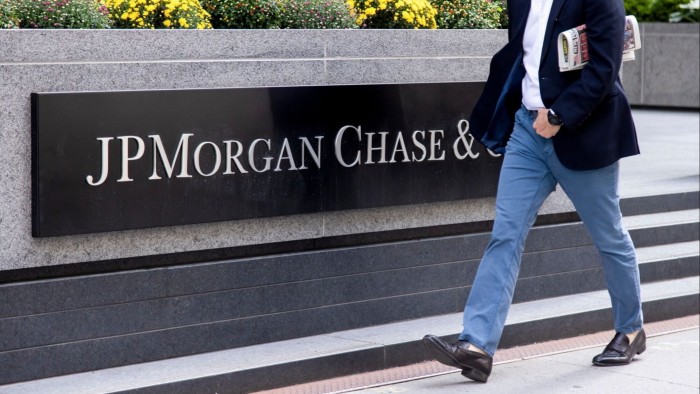Unlock the Editor’s Digest for free
Roula Khalaf, Editor of the FT, selects her favourite stories in this weekly newsletter.
JPMorgan Chase has launched a £21.5mn lawsuit against a small UK construction company over alleged building defects at an east London warehouse the US lender uses to store precious metals.
The Wall Street bank is suing Marbank Construction, which was contracted to design and build the warehouse, in London’s High Court after JPMorgan suffered “extensive losses” as a result of the alleged faults, according to court documents reviewed by the Financial Times.
Better known for occupying skyscrapers in financial districts, lenders such as JPMorgan use out-of-town storage units to hold precious metals as part of their commodities businesses.
However, details of these premises are often kept under wraps for security reasons and JPMorgan has not made its ownership of the property in Belvedere, east London, public until now. The bank has similar premises in New York and Singapore, as well as a vault in central London.
In documents submitted to the High Court, the bank alleged that inspections carried out by a third party in 2019 uncovered cracks in the warehouse’s concrete service yard. Faults with the warehouse’s underground water tanks were also found, according to the lawsuit.
The bank claimed that these defects forced it to demolish parts of the premises and seek alternative storage facilities, causing it to suffer “extensive losses”.
Marbank, a Surrey-based company that specialises in the design and construction of commercial and industrial buildings, acknowledged the existence of some issues with the warehouse but denied any liability for JPMorgan’s alleged losses.
The bank is seeking £11mn to cover remedial works at the London warehouse and a further £10.5mn to recover costs arising from its use of alternative storage facilities.
In its defence filing, Marbank claimed that because JPMorgan was using the premises to store heavy goods, this necessitated a “substantial increase” in the load the structure could take, meaning the premises required “enhanced specification”. The warehouse was originally built for drinks company Diageo.
Marbank also said it had offered to carry out remedial works to the premises at no cost to JPMorgan, adding that the bank refused to permit Marbank to carry out its own inspection or investigations before hiring another contractor to carry out demolition work. JPMorgan said Marbank was invited to the premises for inspections.
Marbank added that the claim “appeared to be grossly exaggerated and substantially in excess of the reasonable costs of necessary works to remedy the alleged defects”.
The company also alleged that BWB, an engineering consultancy that served as the project’s structural engineer, acted negligently, adding that it would seek damages from BWB if JPMorgan’s case was successful. BWB denied that Marbank was entitled to an indemnity or contribution to its potential liability to JPMorgan in its own court filing and denied that it had breached its contract.
Marbank reported pre-tax profits of £438,000 on turnover of £66.8mn for the year to the end of July 2023, according to its latest accounts filed at Companies House.
Wall Street lenders’ metal trading activity has previously come under scrutiny in the US. Two former JPMorgan precious metal traders were last year sentenced to prison for fraud, attempted price manipulation and “spoofing” orders last year.
The bank agreed in 2020 to pay a $920mn fine to authorities after admitting to manipulating precious metals futures and US government bond markets over eight years.
JPMorgan, Marbank Construction and BWB declined to comment on the lawsuit.



